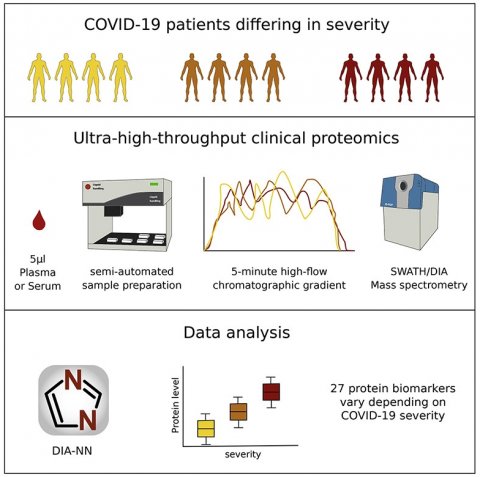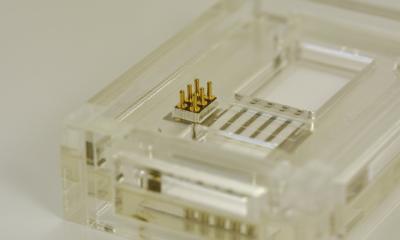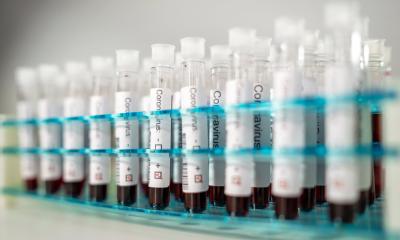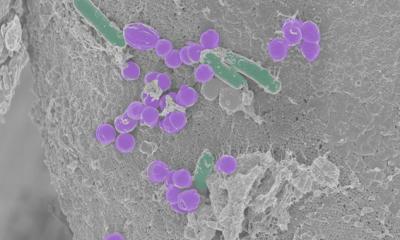News • Predictive proteins
Biomarkers in COVID-19 patients could predict how ill they become
Researchers at the Francis Crick Institute and Charité – Universitätsmedizin Berlin have identified 27 protein biomarkers that could be used to predict whether a patient with COVID-19 is likely to become severely ill with the disease.
People infected with SARS-CoV-2, the virus which causes COVID-19, respond differently. Some do not develop any symptoms, some need to be hospitalised and, for some, the disease is fatal. In this study, published in Cell Systems, researchers found 27 potential biomarkers that are present in different levels in patients with COVID-19, depending on the severity of their symptoms. The markers could help doctors to predict how ill a patient will become and provide scientists with new targets for drug development.

Image source: Messner et al., Cell Systems 2020 (CC BY 4.0)
The researchers refined an analysis method called mass spectrometry to rapidly test for the presence and quantity of various proteins in the blood plasma. This platform was developed at the Francis Crick Institute and applied to analyse serum of 31 COVID-19 patients at the Berlin University hospital Charité. Their results were further validated in 17 patients with COVID-19 at the same hospital and in 15 healthy people. The researchers hope their findings will lead to the development of simple routine tests to check for the levels for one or some of these proteins in patients with COVID-19. The results of such tests could be used to support doctors in deciding what treatment to give.
Christoph Messner, one of the lead authors and postdoc in the Molecular Biology of Metabolism Laboratory at the Crick, says: “A test to help doctors predict whether a COVID-19 patient is likely to become critical or not would be invaluable. It will help them make decisions about how to best manage the disease for each patient as well as identify those most at risk. We hope the biomarkers we’ve identified will lead to the development of these vitally needed tests.”
While our technology platform was not developed specifically for COVID-19, it has proven highly useful to gain novel insights into this disease
Vadim Demichev
Three of the key proteins that the team identified were associated with interleukin IL-6, a protein which causes inflammation, a known marker for severe symptoms. The researchers suggest it may be possible to alleviate some of these symptoms by using drugs that target these associated proteins.
Markus Ralser, paper author and group leader at the Crick and Charité, says: “The robust method we’ve used in this study is a valuable and powerful tool to predict disease progression and also find potential targets for treatments. Our approach could also be easily applied to other diseases, now and in the future, to understand more about their effects on the body.” Vadim Demichev, another lead author and scientist in the Molecular Biology of Metabolism Laboratory at the Crick adds, “While our technology platform was not developed specifically for COVID-19, it has proven highly useful to gain novel insights into this disease. We hope it will help the development of prognostic analytical tests for a broad range of conditions in the near future”.
Source: Francis Crick Institute
03.06.2020





